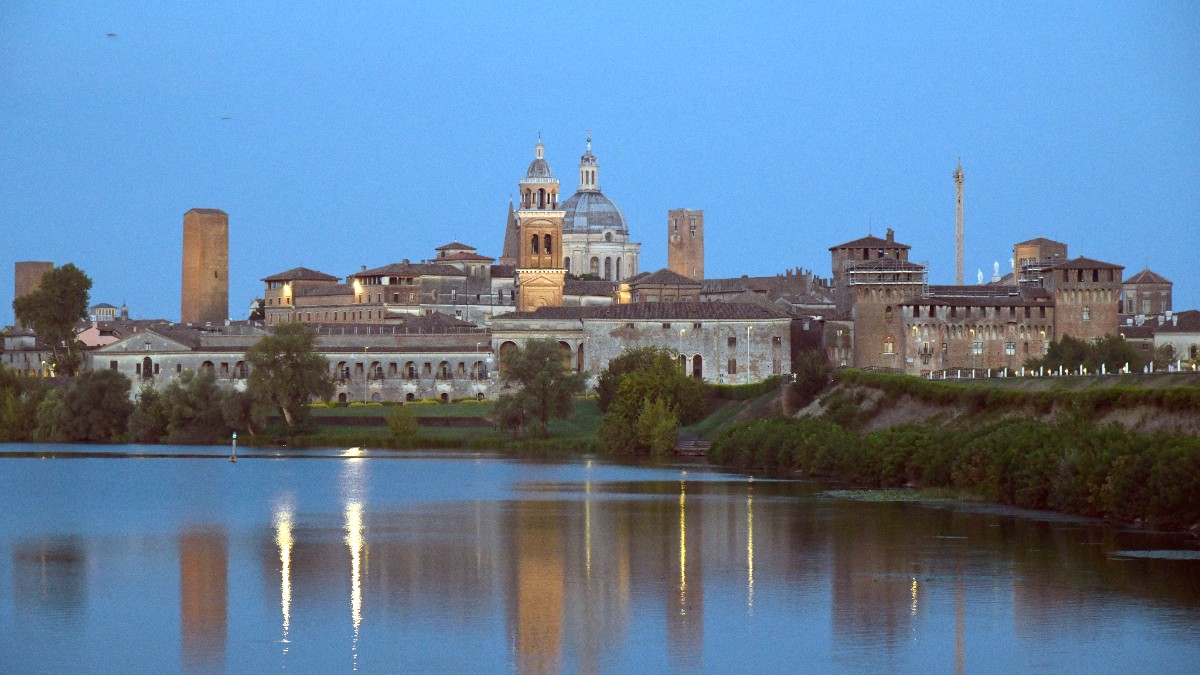
Lombardy And The Lakes, Italy
The Gonzaga family, Mantua's rulers for centuries, significantly influenced local gastronomy. Their court kitchens experimented with refined ingredients and complex preparations, establishing a tradition of rich, flavorful dishes.
The surrounding countryside, with its pumpkins, rice paddies, and pigs, supplied core ingredients. Mantuan gastronomy relies on specific, locally sourced components for its distinctive character.
Breakfast (Colazione) is often a quick affair (early morning). Lunch (Pranzo) is typically 12:30 PM - 2:30 PM. Dinner (Cena) starts later, 7:30 PM - 10:00 PM.
A popular pre-dinner ritual (6:00 PM - 8:00 PM). A drink often comes with a complimentary buffet of snacks or small bites, sometimes serving as a light dinner.
Many restaurants add a small Coperto (cover charge) per person for bread and table service. If Servizio (10-15%) is included, no further tip is customary. If not, rounding up is appreciated.
Mantua's most famous dish: square pasta filled with a sweet and savory mixture of pumpkin, Amaretti biscuits, Mostarda, and Parmesan. Served simply with melted butter and sage.
A truly unique sweet-and-sour pasta experience.
A creamy risotto prepared with "pistume," sautéed pork sausage. Typically topped with a generous dusting of Grana Padano cheese. A hearty local staple.
Reflects the region's rice-growing tradition.
Pike fish from local lakes, prepared with a green sauce made from capers, anchovies, and parsley. A refreshing freshwater dish.
Taste the lakes' bounty.
A unique, hard, crumbly almond cake. Break it by hand, do not slice. Makes a good souvenir.
A rich cake with layers of Zabaione cream and almond meringue, a local specialty.
Several restaurants present refined interpretations of Mantuan cuisine or modern Italian fare, offering elegant settings and extensive wine lists.
Look for pizzerias with pizza by the slice, bars serving sandwiches (Panini), and local bakeries with pastries. "Gastronomia" shops offer deli-style prepared foods.
Mercato Contadino (Farmers Market) offers fresh local produce. Specialty food shops sell local products. International cuisine options are limited.
Local schools or private chefs offer classes on Mantuan cuisine, like Tortelli di zucca. Food tours combine tastings with historical insights.
Engage directly with local culinary traditions.
In the countryside, some Agriturismi or farms offer tours and tastings of Parmigiano Reggiano, Grana Padano, or Lambrusco wine.
Insights into local food production.
Various food-related festivals happen throughout the year, especially harvest festivals in autumn. Check local event calendars.
Eating at an authentic Trattoria or Osteria specializing in traditional Mantuan dishes is a distinctive experience.
"Senza carne" (without meat), "Senza latticini" (without dairy) for specific dietary requests.
Carry a card explaining dietary needs in Italian for clear communication with staff.
Mantua has very limited to non-existent dedicated Halal or Kosher dining options. Travelers with these needs should plan accordingly.
Self-catering or pre-arranged meals are viable options.
Look for restaurants displaying an "AIC" (Associazione Italiana Celiachia) sticker, indicating certification for gluten-free options.
Carrying a card in Italian explaining specific dietary needs is advisable.
Learn to prepare traditional Mantuan dishes like Tortelli di zucca with hands-on instruction from local chefs.
Join a guided food tour to taste various local specialties while learning about the city's gastronomic heritage.
Some local schools or private chefs offer cooking classes focused on Mantuan cuisine, such as making Tortelli di zucca or Sbrisolona.
In the surrounding countryside, some Agriturismi or working farms offer tours and tastings of local products like Parmigiano Reggiano, Grana Padano, or Lambrusco wine.
Various food-related festivals happen throughout the year in Mantua and the surrounding province, especially harvest festivals in autumn.
Abundant throughout the historic center. They offer traditional Mantuan dishes in comfortable, often rustic, settings. Excellent choices for an authentic local meal.
Seek out a Trattoria or Osteria.
Mantua has limited international cuisine compared to larger Italian cities. You might find some Asian or generic international restaurants, mainly outside the historic center.
Italian cuisine reigns supreme here.
Dining at a bar for breakfast or opting for a "gastronomia" for lunch offers economical choices. Dinner at a mid-range Trattoria provides good value.
A few Italian phrases for ordering or stating dietary needs will be appreciated by restaurant staff and can ease your dining experience.
For popular restaurants, especially on weekends or during high season, making a reservation is advisable to secure a table.
Mantuan cuisine is heartier and more robust than other regional Italian fares, a reflection of its Po Valley roots and historical courtly tastes.